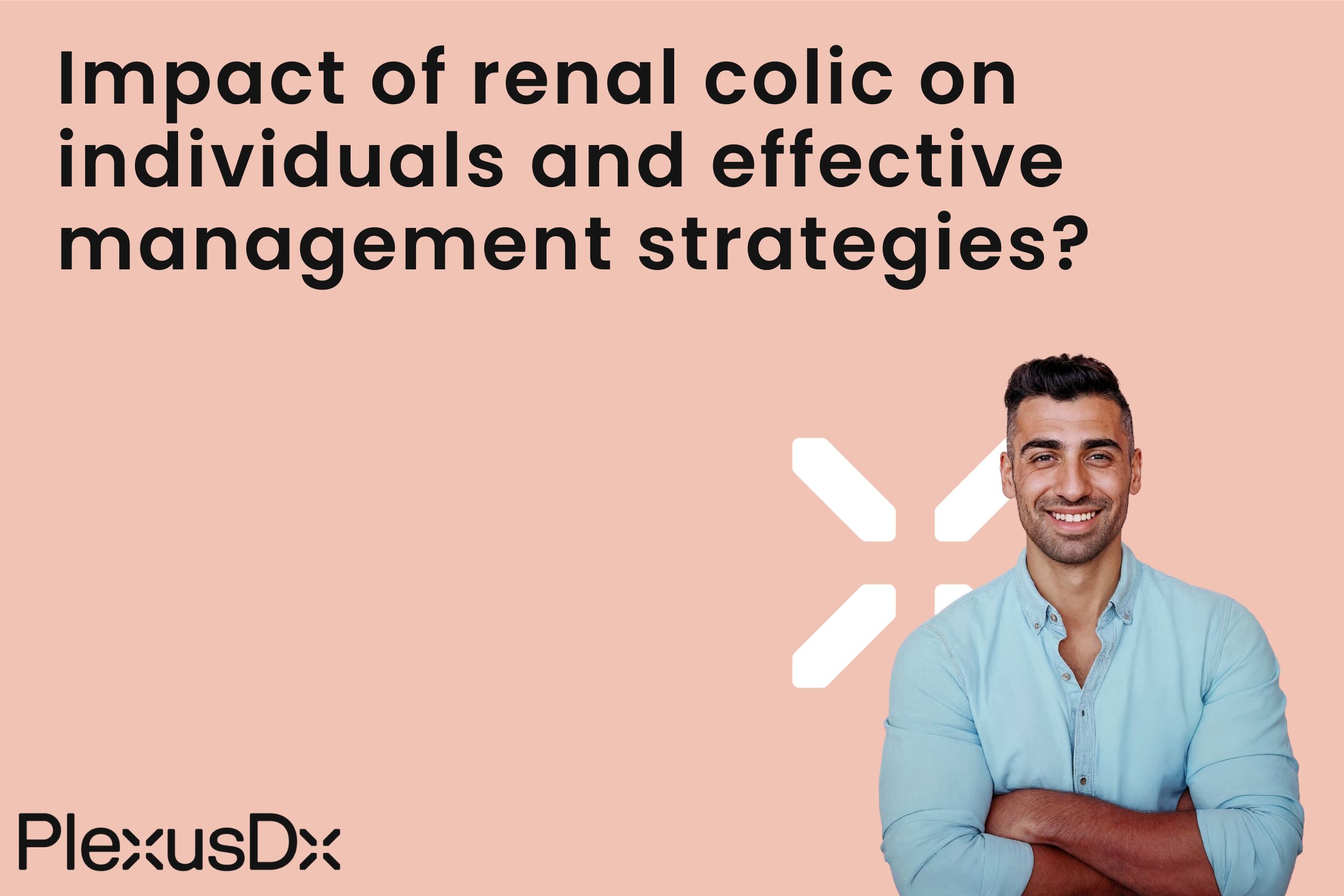PlexusDx: Providing Customized Health Reports
PlexusDx stands as a top provider of customized health reports which deliver crucial information about genetic factors that affect personal health. Our discussion today covers renal colic which typically points to the presence of kidney stones. What impact does this condition have on people and which management strategies prove most effective?
Symptoms and Discomfort
The abrupt intense pain experienced in the lower back or abdomen functions as a primary symptom of kidney stones that block the urinary path during renal colic. The journey of crystalline mineral formations from the kidneys through the ureters leads to severe discomfort. Individuals with renal colic feel waves of pain that change in strength which creates substantial suffering for those who experience it. Individuals experiencing renal colic usually feel intense pain starting in the side and back beneath the ribcage that spreads towards the lower abdomen and groin. As the stone moves through the urinary system the discomfort changes location and patients often experience nausea along with vomiting and restlessness.
Genetic Predispositions and Stone Composition
The repeated occurrence of renal colic in patients with kidney stone history highlights the need to investigate the factors that lead to this condition. The formation of kidney stones involves genetic predispositions which become apparent through the analysis of stone composition such as calcium oxalate or uric acid that reveals metabolic and dietary influences. The current evidence for a direct genetic model of renal colic remains low quality which necessitates additional research to reach definitive conclusions.
Treatment and Management
Renal colic treatment emphasizes pain relief while helping stones move through the urinary tract. Stone management requires proper hydration since sufficient fluid intake helps the body naturally eliminate stones. Patients with renal colic are commonly given nonsteroidal anti-inflammatory drugs (NSAIDs) or opioids for severe cases to manage their discomfort. When stones become too large to pass naturally or cause complications such as persistent pain or infection medical treatments including lithotripsy and endoscopic stone removal become necessary for effective management.
Practical Tips for Managing Renal Colic
- Stay Hydrated: Sufficient daily water intake helps maintain kidney health and enables kidney stones to pass through more easily.
- Pain Management: Your healthcare provider will guide you about pain management and ensure you have the necessary medications when necessary.
- Dietary Modifications: Work with a healthcare professional to determine which dietary elements could be leading to kidney stone development and modify your diet accordingly.
- Regular Monitoring: Monitor your symptoms closely and contact a medical professional without delay if you face multiple episodes of renal colic or its complications.
Personalized Health Insights
Individuals who want to effectively manage renal colic should fully understand its intricate connections with kidney stones. The Precision Health & Wellness tests from PlexusDx available on their website and at Amazon and Walmart enable you to access genetic predisposition data which helps you make informed health decisions. Use personalized insights from PlexusDx to tackle renal colic while putting your wellness first. Your health deserves top priority and taking proactive steps to treat conditions like renal colic improves your overall quality of life and well-being. Personalized health insights enable you to make informed choices that enhance your pursuit of optimum health and vitality.

Share:
What trait affects attention and longevity, analyzed by PlexusDx tests?
How can CLOCK gene variations improve health through lifestyle changes?